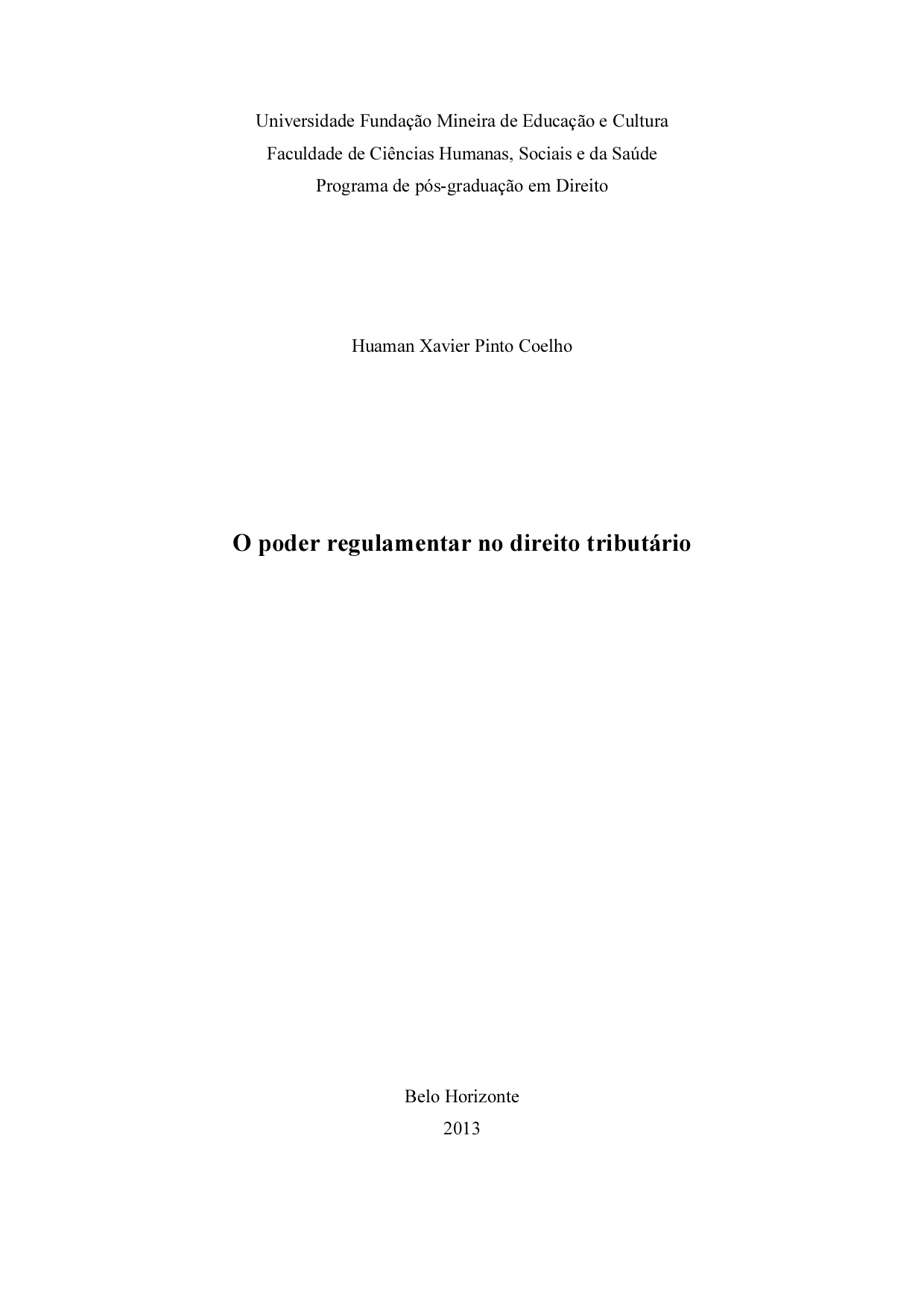O poder regulamentar no direito tributário

Visualizar/
Data
2013Autor
Coelho, Huaman Xavier Pinto
xmlui.mirage2.itemSummaryView.MetaData
Mostrar registro completoResumo
O presente trabalho versa sobre o uso do regulamento no direito tributário brasileiro.
Para tanto, são visitados os conceitos do princípio da legalidade no direito
administrativo e no direito tributário. Além disso, esse princípio é mostrado também
com sua roupagem atual, considerando os efeitos da crise da lei sobre o princípio da
legalidade. O objetivo principal da pesquisa é verificar junto à doutrina e jurisprudência
dos tribunais superiores (STJ e STF) quais os limites de atuação do regulamento no
direito tributário. Esse tema é de suma importância no direito tributário atual, tendo em
vista que tem se avolumado o uso do regulamento nesse ramo do direito, muitas vezes
sob a cancela do Poder Judiciário. Por isso, é fundamental descrever os contornos e
limites do poder regulamentar na tributação, a fim de que a segurança jurídica seja
garantida, mas também, seja permitido que o Fisco utilize de instrumentos jurídicos
capazes de lidar com a complexidade do mundo atual. A hipótese defendida no projeto
de pesquisa, que, ao final se confirmou, consiste em permitir uma maior atuação da
Administração Pública através do regulamento, sem, contudo, retirar do contribuinte a
previsibilidade do tributo devido. A metodologia utilizada foi a análise de conteúdo,
com revisão da literatura sobre o tema e com a análise de julgados do STJ e STF. This paper deals with the use of regulation in Brazilian tax law. For this, the concepts
are the principle of legality are analyzed in administrative law and tax law. Moreover,
this principle is also shown with its current view, considering the effects of the crisis of
law in the principle of legality. The main objective of the research is to check with the
doctrine and the jurisprudence of superior courts (STJ and STF) which limits the role of
regulation in the tax law. This topic is of paramount importance in the current tax law,
with a view that has fattened the use of regulation in this area of law, often under the
gate of Judiciary. Therefore, it is essential to describe the contours and limits of
regulatory power in taxation, so that legal security is guaranteed, but also, the IRS is
allowed to use legal instruments capable of dealing with the complexity of today's
world. The hypothesis put forward in the research project, which was confirmed at the
end, is to allow a greater role of public administration through regulation, without,
however, removing the predictability of the taxpayer of the tax due. The methodology
used was content analysis, with review of the literature on the subject and analysis of
STJ and STF cases.
